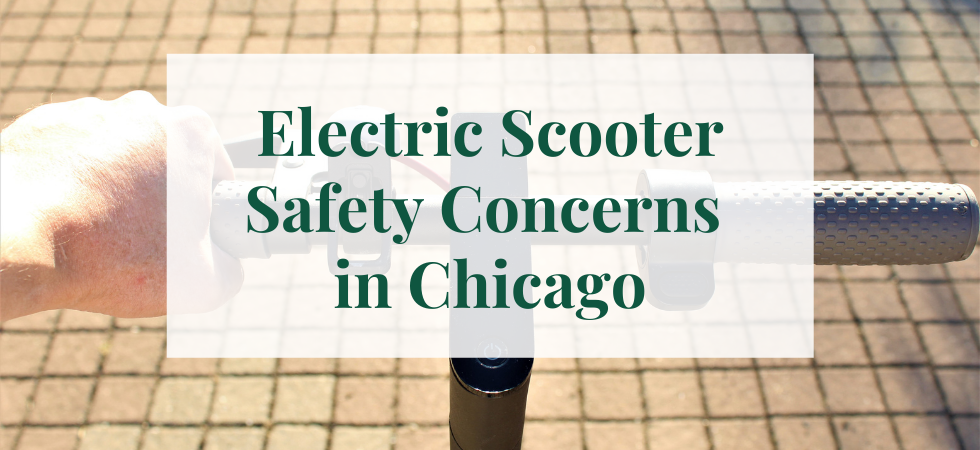As cities adopt fleets of publicly shared e-scooters and bikes to increase transportation accessibility, concerns over riders’ and pedestrians’ safety also continue to rise.
According to the Consumer Product Safety Commission (CPSC), emergency room visits due to e-scooter, e-bikes, hoverboards and other micro-mobility products have increased 70% since 2018, with more than one third of those visits due to head injuries.
Municipalities nationwide have struggled with the regulation of these products and their riders. There are no federal laws that mandate a rider age limit, proof of license or insurance when riding a publicly operated e-bike or e-scooter. Some states and cities have adopted their own rules surrounding these rentals, but it continues to be a challenge to regulate by law.
In 2019 the Chicago Department of Transportation unveiled a pilot program to offer public e-scooter access around the metropolitan area. The city allowed a shared partnership between three micro-electric mobility companies – Bird, Lime and Spin – introducing 10,000 mobility units throughout the city.
During the initial pilot, the public voiced concerns over crowded sidewalks, injuries and inexperienced riders, expressing the new transportation service was more hassle than help. A study from the Insurance Institute for Highway Safety (IIHS) found that e-scooter programs lacking a clear vision and expectation for safety policies pose a risk for riders and, specifically, pedestrians. IIHS studies also concluded that the significant majority of e-scooter related injuries occurred on the sidewalk.
Data from Chicago’s pilot program showed that 1 in every 2,200 rides resulted in an emergency room injury, with two-thirds of those injuries from first-time riders. These numbers demonstrate just how important it is for cities and riders to follow program guidelines.
In 2020, the City of Chicago implemented a contract with the same three micro-electric mobility companies under strict requirements in an effort to prioritize safety:
- The legal riding age for scooters in Chicago is 18
- Scooters must be tracked and stay within boundaries marked by electric fence
- Scooters are required to have a lock-up feature to prevent theft
- Speeds are limited to 15 mph
- Scooters may only be ridden between 5 a.m. – 10 p.m.
- Scooters may not be ridden on sidewalks
- Scooter riders must follow traffic patterns
- Helmets are required while riding
- DUI laws can apply to scooter riders
After a brief hiatus, e-scooters and e-bikes are expected to return to the Windy City in 2022 in a new two-year program with Bird and Lime that will pick up where previous programs left off. Citizens expressed their concern at town hall meetings, prompting the initiation of “geo-fencing technology” that will detect when riders are on the sidewalk. The city of Chicago remains hopeful to keep their sidewalks clear of clutter and eliminate the safety threat to pedestrians; however, the city is requiring the independent companies to regulate their own fleets, their riders and set user boundaries.
If you or a loved one have been involved in any kind of electric scooter accident, it’s a good idea to contact a Chicago transportation accident lawyer about your case. Whether you were a rider, a pedestrian or in another vehicle, you may be entitled to compensation to pay for damage to property, medical bills, loss of wages and other expenses related to your accident injuries.
Contact the skilled and reputable team at Clifford Law Offices, one of Chicago’s leading personal injury firms by calling (312) 625-6192 or filling out this form.

